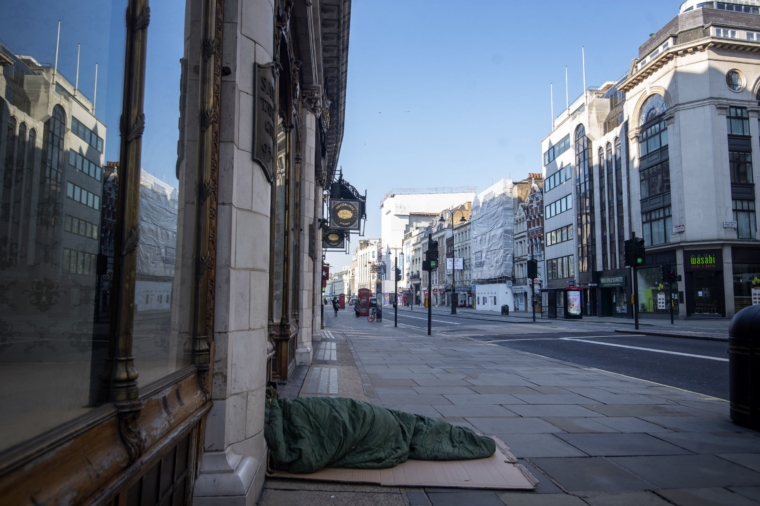Four long months of lockdown have seen every one of Shelter’s employees commit every last drop of energy and creativity to keep our work going in seemingly impossible circumstances. For us, and every other charity, life will never be the same again.
A whirlwind has swept the country – and only those with a safe home to hide in have been spared its wrath. For some of us emerging into summer, there is relief. For the people we have been supporting at Shelter, there is only worse to come.
The single mother with two young kids living in one room of an emergency B&B, sharing a bathroom with other families, emerges to learn that her chance of escaping homelessness and finding a real home is now even more remote. The young renter, just starting out in their career, who has fallen into arrears due the pandemic and could face eviction when the evictions ban ends on 23 August. They never dreamed that they could so easily fall into homelessness and destitution.
At Shelter, we are bracing ourselves for a deluge of people needing our support, the likes of which we have never seen. Meanwhile, our resources continue to shrink.

Despite the huge generosity from our supporters, there is simply no way to fill the hole left by cancelled fundraising events, closed charity shops and months of keeping our dedicated face-to-face fundraisers off the streets. Every day that our shops stayed shut was another £28,000 in income gone. The missed opportunities to recruit new donors, who guarantee the sustainability of our life-changing work, will be felt for years.
Yet Shelter is one of the lucky ones. We have both reserves and determined fundraisers who will throw the kitchen sink at ensuring our survival. But if Pro Bono Economics is right that one in ten charities faces bankruptcy, I fear that neither the Government nor the public understands what that means. If we change forever, so does Britain. And not for the better.

Photographer: Alexandra Smart
“Faith, hope and charity. And the greatest of these is charity” – Corinthians chapter 1 verse 13. The very idea of charity expresses the best in individuals and communities, love for our neighbours that means we won’t stand by while they suffer.
At Shelter we stand between people facing homelessness, and a housing system that can be cruel and unfair. Without our work, housing inequalities would be even worse.

The Government has given welcome help to some charities to mitigate the worst effects of Covid-19. But the funds offered are not available to everyone and they are simply not enough. Frankly, the language used in the Government’s press release about its ‘package of support’ was not helpful either. Like many other charities, we actually saw a dip in much-needed donations as people thought we had been ‘bailed out’. Far from it.
Most of the small amount of emergency cash available has been filtered through ministers’ choice of causes. This paternalistic attitude that the Government knows which charities are best, is a dangerous one.
As well as supporting some of those worst affected by the crisis right now, charities of all shapes and sizes play a crucial role in supporting millions of people with diverse needs – and they will be critical in supporting the country’s recovery from coronavirus too.

People won’t stop needing help, and we need a charity sector that can survive this crisis and thrive. Charities need the freedom to help those who need it most and to speak truth to power. We are all made poorer when charities lose their voice.
The Government should remember it relies on charities too, and not only to provide essential services. At Shelter, for example, our teams are continually called upon for evidence and advice on policy, legislation and guidance. There are plenty of others like us.
The financial help offered to businesses has been broad, and it’s important the Government replicates this approach for charities.
This is a make or break moment. As we face an oncoming storm of poverty and homelessness that the Government has not done enough to prevent, we need support – not inaction.
Polly Neate is chief executive of Shelter

